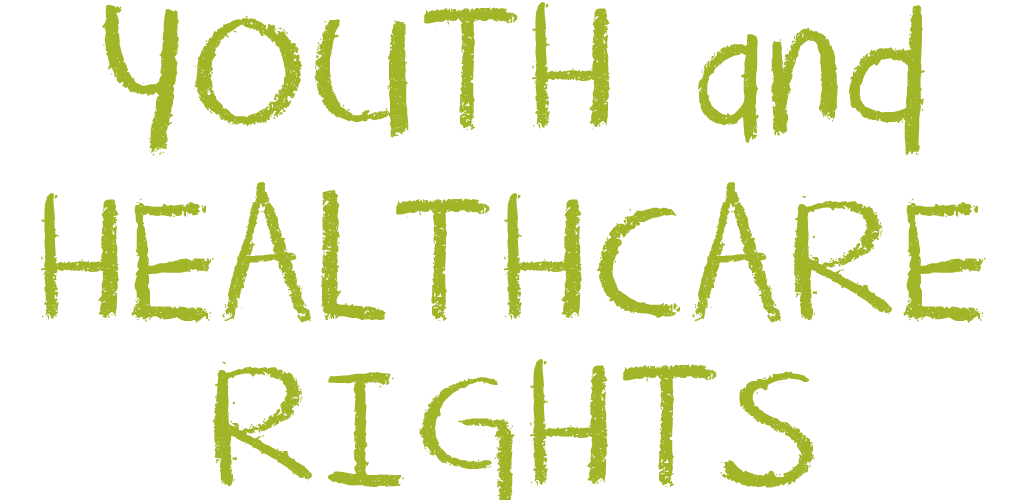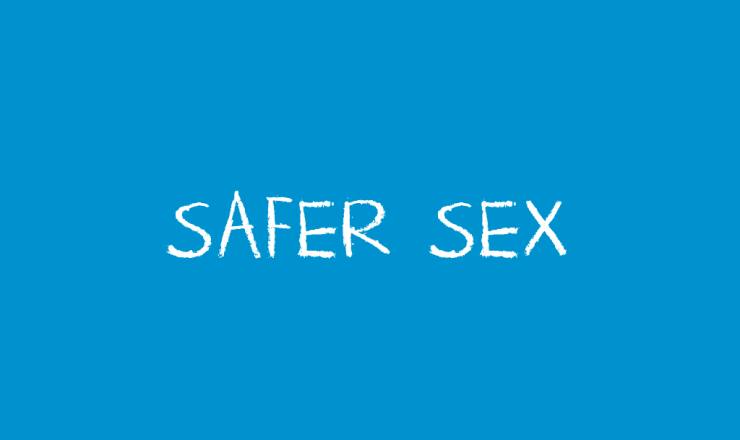Youth and Healthcare Rights
Teen Health Source is a program of Planned Parenthood Toronto, a community health centre located in Downtown Toronto. While all health care centres should off you a similar base of care, the clinic at PPT has some specific policies that are meant to make their space more welcoming and inclusive which sadly aren’t incorporated at all clinics.
Below is a list of general rights that you have as a patient at any clinic, as well as some specifics for how things get done at Planned Parenthood Toronto. For more info on Planned Parenthood Toronto’s hours and service, check out their website at ppt.on.ca.
| ****REMEMBER**** |
|
As a youth, you have a right to:
- know the names, roles and positions of the people serving you;
- know the qualifications of the people serving you;
- easily access health care services that are provided in a safe, comfortable, respectful and confidential environment within legal limits;
- bring a friend or support person with you to an appointment and/or into the exam room;
- be treated with respect and dignity regardless of age, sex, gender identity, sexual orientation, race, ethnicity, citizenship, education, physical and/or mental abilities;
- access health care even if you do not have a health card;
- access all the information you need, feel comfortable making your own decisions and be supported in your decision making;
- refuse any care, services or treatment;
- share only the information you want with the people serving you;
- refuse the presence of an observer or student;
- engage in fair, safe and clear process of complaint.
At PPT, you do NOT need:
- to bring in your health card, if your parents/guardians have it;
- to worry about your parents/guardians knowing that you were at the clinic;
- permission from a parent/guardian to access any of their services, including getting a prescription or buying birth control and Plan B. In fact, it is unethical and illegal for healthcare providers to tell your parents/guardians you were at a clinic.
Confidentiality at PPT
Your privacy is important. PPT takes these steps to protect it:
- They don’t acknowledge whether you are a client of PPT, unless you have given them prior authorization.
- You can let them know how to can contact you and if you don’t want them to leave a detailed phone message.
- You can only book appointments for yourself.
- To ensure they are speaking to you when you call for test results, they will ask for your name, date of birth, health card number, last date of your visit and what kind of tests you had done.
Clinical Records
- You may be seen by different providers at a clinic depending on your needs. In some cases your medical chart may be viewed by all those who are involved in your care. This may include nurse practitioners, physicians, social workers or admin staff.
- Other people at a clinic might look at or use your information to check, improve, or plan services (like if they are assessing how your provider documents visits or making sure they follow legal guidelines), to report to funders or regulators, (like reporting how many people used a service), to process payment (like with your health card), or for some teaching, research, or statistics purposes.
- No one outside a clinic, including a relative or friend, can see your clinical records without your permission. Healthcare providers require you to sign a Consent to Release Information form before they can disclose your personal health information.
- If you want a copy of your clinical records, you will need to sign a form consenting to release your information. If you want to transfer your records to PPT or to another clinic, you can tell your provider or ask the front desk receptionist. To transfer your medical records somewhere else, you’ll need the name, address and fax number of the new location and provider. This can take up to 30 days and is free at PPT. Some clinics may charge a fee.
- In Ontario, your records must be kept for:
- 10 years from your last visit, if you are seeing a clinician.
- 7 years from your last visit, if you are seeing a therapist.
- If you are under 18 at your last visit, clinician records are kept for 10 years and therapist records are kept for 7 years after your 18th birthday.
Disclosure Required by Law
There are times when clinicians are required by law to share your information without your prior consent. These are:
- If you intend to harm yourself or another person;
- In the case of apparent, suspected or potential child abuse (for youth under the age of 16);
- If you report sexual abuse by a Regulated Healthcare Professional (i.e. nurse, doctor, social worker etc.);
- If there is a summons for record or testimony by a court of law;
- If there is an ethical violation by a social worker who is a member of the College of Social Workers and Social Service Workers.
This information is also found on the Health Services Client Agreement and Registration Documents you sign when you first register at PPT. They’ll remind you that you don’t have to tell a healthcare provider anything you are uncomfortable sharing. You have the right to choose how much or how little you want to discuss.
Positive Test Results for a Reportable, Communicable Infection
Toronto Public Health (TPH) classifies some infections (including some STIs) as reportable, communicable infections. These include infections like gonorrhea, chlamydia, HIV, or hepatitis. If you test positive for one of these, the result is sent to TPH. You will be contacted by TPH if:
- the clinic where you got tested can’t reach you;
- you don’t follow up to get treatment;
- you choose to have TPH contact current or past partners for testing.
Abuse/Domestic Violence
- For clients over 16: If you disclose that your safety is at risk due to an abusive situation, a healthcare provider will ask you if you want help creating a safety plan, calling the police, and/or contacting a shelter. Clinicians do not have a duty to report.
- For clients under 16: If any person suspects a child is in danger of being abused, they must report it to the Children’s Aid Society (CAS).
Complaint Procedure
At PPT, you can make a complaint using a Client Complaint Reporting form that you can find in our clinical reception area or get from our front desk receptionist. You can also make a complaint by email, mail, in person or over the phone.
Additionally, if you have a complaint or concern about a regulated professional service provider at any clinic you can contact the professional college they are registered with:
- Doctors: cpso.on.ca | 416-967-2603
- Social Workers: ocswssw.org | 416-972-9882
- Registered Psychotherapists: crpo.ca | 416-479-4330
- Nurses: cno.org | 416-928-0900 ext. 6989
- Midwives: cmo.on.ca | 416 640-2252 ext. 224
Privacy Policy
If you believe that your privacy rights are not being respected, PPT has a privacy complaints procedure. You can find out about the procedure and file a complaint by contacting the Privacy Officer of PPT at privacy@ppt.on.ca or 416-961-0113 ext. 143
If you are not satisfied with any clinics response to your privacy complaint you may contact the Office of the Information and Privacy Commissioner/Ontario:
- Website: ipc.on.ca
- Phone: 1-800-387-0073
- Email: info@ipc.on.ca
For a downloadable resource on this topic, please visit Planned Parenthood Toronto Factsheet Database.
If you have questions about this topic, feel free to contact one of our peer educators. [Link]
Last Edited: May 2020






